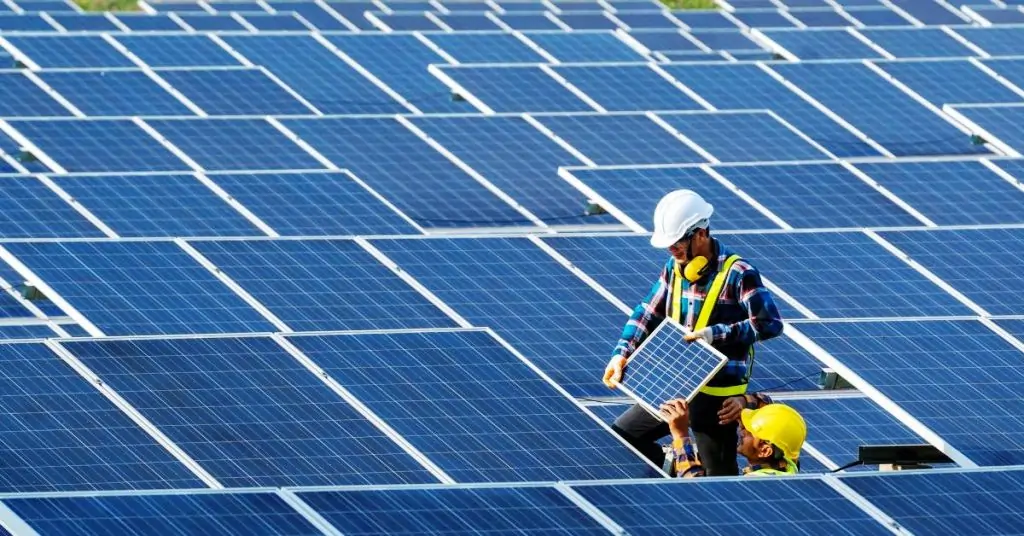Solar Panels
In today’s world, the importance of solar energy cannot be overstated. As the push for renewable energy sources grows, more homeowners and businesses are turning to solar panels to reduce their carbon footprint and lower energy costs. Investing in solar panels not only benefits the environment by reducing reliance on fossil fuels but also offers significant financial savings through reduced electricity bills and available incentives. This shift towards sustainable energy solutions makes understanding the best options on the market crucial.
In this post, we’ll explore the top 7 best solar panel brands and their prices, specifically for those looking to stay within a budget. Whether you’re a homeowner looking to cut costs or a business aiming to adopt sustainable practices, this guide will help you make an informed decision on the most efficient, durable, and cost-effective solar panels available.
Understanding Solar Panels
What are Solar Panels?
Solar panels are devices that convert sunlight into electricity, providing a renewable energy source for various applications. They are composed of multiple photovoltaic (PV) cells that capture and convert solar energy into direct current (DC) electricity. This electricity can then be used immediately, stored in batteries, or converted into alternating current (AC) for use in homes and businesses.
Basic Components of Solar Panels:
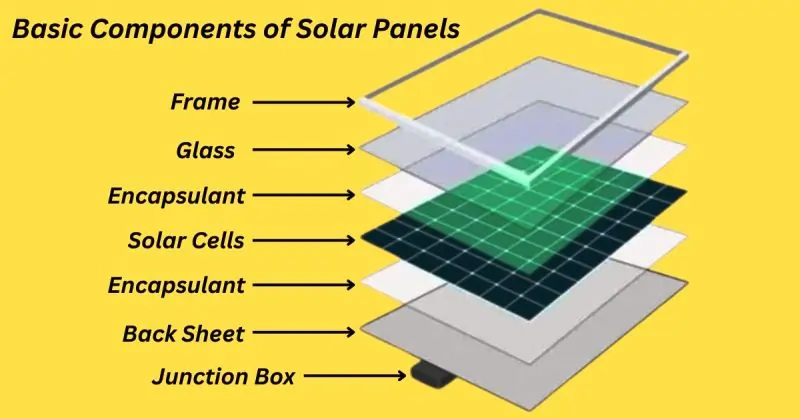
- Photovoltaic Cells: These are the core components that convert sunlight into electrical energy. Made from semiconductor materials like silicon, they generate electricity when exposed to sunlight.
- Glass Cover: Protects the PV cells from environmental factors like weather and debris while allowing sunlight to pass through.
- Frame: Typically made of aluminum, the frame provides structural support and stability to the panel.
- Encapsulant: A protective layer that seals the PV cells and helps maintain their alignment.
- Backsheet: A protective layer on the rear of the panel that insulates and protects against moisture and dirt.
- Junction Box: Houses the electrical connections and diodes, preventing the reverse flow of electricity and ensuring safe operation.
Types of Solar Panels
Monocrystalline Solar Panels
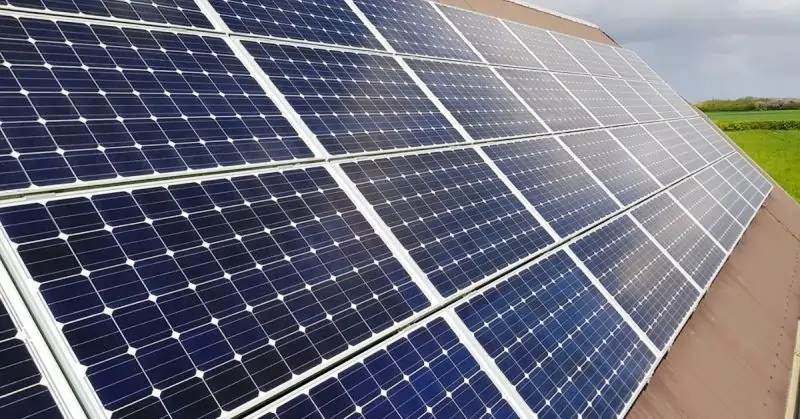
- Description: Made from single-crystal silicon, these panels are known for their high efficiency and sleek appearance.
- Efficiency: Typically ranges between 15-20%.
- Advantages: High efficiency, long lifespan, and better performance in low-light conditions.
- Disadvantages: Generally more expensive than other types.
- Polycrystalline Solar Panels:
- Description: Made from multiple silicon crystals, these panels are more affordable but slightly less efficient than monocrystalline panels.
- Efficiency: Typically ranges between 13-16%.
- Advantages: Lower cost, easier manufacturing process.
- Disadvantages: Lower efficiency and slightly larger size for the same power output compared to monocrystalline panels.
- Thin-Film Solar Panels:
- Description: Made by depositing one or more layers of photovoltaic material onto a substrate, these panels are lightweight and flexible.
- Efficiency: Typically ranges between 10-12%.
- Advantages: Lightweight, flexible, and easier to install on various surfaces.
- Disadvantages: Lower efficiency and shorter lifespan compared to crystalline panels.
Criteria for Selecting Solar Panels
| Criteria | Description |
|---|---|
| Efficiency | Efficiency measures how well a solar panel converts sunlight into electricity. Higher efficiency panels produce more energy, making them ideal for limited space and maximizing energy production. |
| Durability and Warranty | Durability ensures the panels can withstand harsh weather conditions and long-term wear. A strong warranty (typically 25 years) guarantees performance and provides peace of mind. |
| Cost vs. Value | Balancing initial costs with long-term savings is crucial. Higher upfront costs for more efficient and durable panels can result in greater savings over time through reduced energy bills and maintenance. |
| Brand Reputation | Choosing reputable brands ensures quality and reliability. Well-known brands are more likely to offer better customer support, consistent product quality, and longer warranties. |
Top 7 Best Solar Panel Brands for Budget
Brand 1: Hyundai Black Max
Overview: As the spring comes closer and the Sun comes out, it’s a good time to start thinking about solar panels. In 2023, the most popular solar panel at A1 Solar Store was the Black Max from Hyundai. Rated for 365 watts, this panel stands out due to Hyundai’s strong brand reputation, reliability, and attractive pricing. Known for its durability and backed by a 25-year warranty, the Black Max provides an excellent balance of performance and affordability, making it a top choice for many consumers. Unlike some other high-end brands, Hyundai solar panels are quite affordable, which significantly contributed to their popularity and high sales.
Price Range:
- Estimated Price Range: $200 – $250 per panel
Pros and Cons:
Pros:
- Strong Brand Reputation: Hyundai is a well-known and trusted brand, ensuring reliability and quality.
- Affordable Pricing: Competitively priced, making it accessible for a wide range of budgets.
- High Efficiency: Rated at 365 watts, it offers robust performance for residential and commercial use.
- Long Warranty: Comes with a 25-year warranty for both product and performance, providing peace of mind.
- Durability: Designed to withstand various environmental conditions, ensuring long-term use.
Cons:
- Availability: Due to its popularity, it may occasionally be out of stock.
- Design: While efficient, the design might not be as sleek as some higher-end models.
Takeaways: The popularity of the Hyundai Black Max reflects broader trends in the solar market. In 2023, consumers preferred panels that offer a good balance of efficiency, affordability, and reliability. The market has seen a shift towards more powerful panels, with many now exceeding 400 watts. Despite a slight increase in the overall cost of solar systems due to rising labor costs, the price of solar panels themselves has decreased by 12% compared to the previous year. This makes it an excellent time for DIY enthusiasts to invest in solar panels.
Brand 2: Trina Vertex S Solar Panel
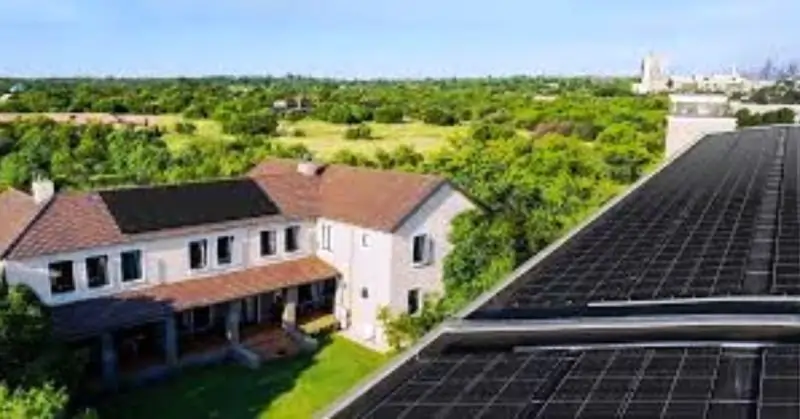
Overview: The Trina Vertex S solar panel, rated for 390 watts, stands out as one of the most affordable yet efficient options in the solar market. Trina Solar, a leading Chinese manufacturer, competes closely with JA Solar for the top spot in solar panel production. Known for their cost-effectiveness, Trina panels offer high efficiency without compromising on quality. The Vertex S model boasts a 21% conversion rate, providing excellent energy output for its price range. Despite its affordability, this panel comes with impressive 25-year warranties for both product and performance, making it a reliable choice for budget-conscious consumers.
Price Range:
- Estimated Price Range: $150 – $200 per panel
Pros and Cons:
Pros:
- High Efficiency: With a 21% conversion rate, the Vertex S offers strong performance, converting more sunlight into usable electricity.
- Affordable Pricing: One of the most cost-effective options on the market, making it accessible for a wide range of budgets.
- Long Warranty: Includes 25-year warranties for both product and performance, ensuring long-term reliability and customer satisfaction.
- Strong Manufacturing Reputation: Trina is a well-established and reputable manufacturer in the solar industry.
Cons:
- Moderate Durability: While efficient and affordable, it may not be as long-lasting as higher-end models from brands like Panasonic and SunPower.
- Basic Design: The design is functional but lacks some of the advanced features and aesthetics of more expensive panels.
Takeaways: The Trina Vertex S solar panel is an excellent choice for those looking to balance cost and efficiency. Its high conversion rate and affordable pricing make it particularly appealing for homeowners and businesses looking to maximize their return on investment. While it may not offer the same longevity as top-tier panels, its 25-year warranty provides peace of mind. The affordability and efficiency of the Trina Vertex S reflect the broader trend in the solar market towards more accessible renewable energy solutions.
Brand 3: Q Cells Q.PEAK DUO XL Solar Panel
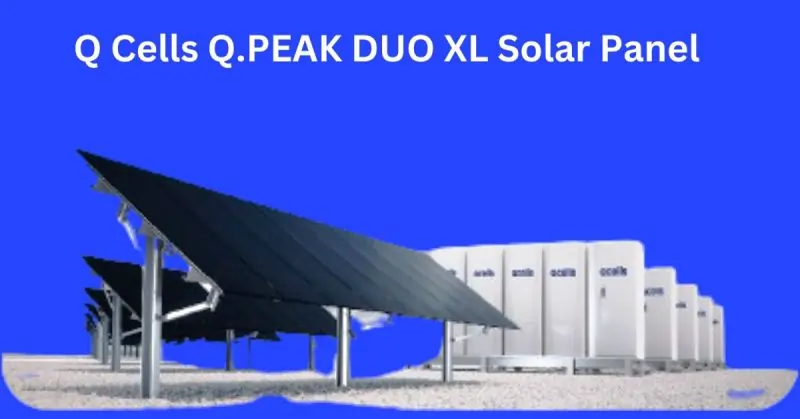
Overview: The Q Cells Q.PEAK DUO XL solar panel is a unique and high-performing option, known for its bifacial technology. This panel features an active rear side that absorbs sunlight in addition to the front side, allowing it to produce significantly more power. Rated for 480 watts, it can realistically generate over 500 watts with the assistance of the backside. While bifacial solar panels are more challenging to install at home to maximize their benefits, they are extremely popular in commercial installations due to their enhanced energy production capabilities.
Price Range:
- Estimated Price Range: $300 – $350 per panel
Pros and Cons:
Pros:
- High Power Output: Rated for 480 watts, with the potential to exceed 500 watts, providing superior energy production.
- Bifacial Technology: Utilizes both sides of the panel to absorb sunlight, increasing overall efficiency and output.
- Durable Design: Built to withstand various environmental conditions, ensuring long-term performance.
- Brand Reputation: Q Cells is a well-known and respected brand in the solar industry, known for quality and innovation.
Cons:
- Complex Installation: More challenging to install at home compared to traditional panels, requiring optimal placement to fully utilize bifacial gains.
- Higher Cost: More expensive than standard solar panels due to advanced bifacial technology.
Takeaways: The Q Cells Q.PEAK DUO XL is a standout choice for those seeking high efficiency and maximum power output. Its bifacial technology makes it especially suitable for commercial installations where space can be optimized for dual-sided absorption. While the initial cost and installation complexity might be higher, the long-term benefits of enhanced energy production make it a worthwhile investment. The Q.PEAK DUO XL’s impressive power capabilities and robust design highlight the innovative strides in the solar industry.
Brand 4: JA Solar 395W Solar Panel
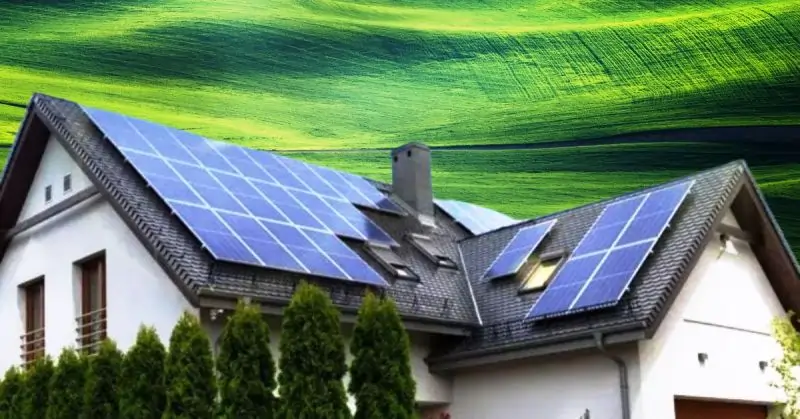
Overview: JA Solar, one of the largest solar panel manufacturers in the world, offers a reliable and cost-effective option with their 395W solar panel. Known for their affordability, JA Solar panels provide excellent value without compromising on quality. This particular model is designed to offer strong performance with a standard set of features, making it a popular choice for both residential and commercial installations. The panel comes with a 12-year warranty, ensuring long-term reliability and customer satisfaction.
Price Range:
- Estimated Price Range: $180 – $220 per panel
Pros and Cons:
Pros:
- Affordable Pricing: One of the most cost-effective options on the market, making it accessible for a wide range of budgets.
- High Power Output: Rated at 395 watts, providing solid energy production for various applications.
- Brand Reputation: JA Solar is a well-established and reputable manufacturer in the solar industry, known for producing quality panels.
- Decent Warranty: Comes with a 12-year warranty, offering peace of mind for long-term use.
- Durable Design: Built to withstand various environmental conditions, ensuring consistent performance.
Cons:
- Standard Efficiency: While reliable, it doesn’t offer the highest efficiency compared to premium brands.
- Basic Features: Lacks some of the advanced features found in higher-end panels.
Takeaways: The JA Solar 395W solar panel is an excellent choice for those looking to balance cost and performance. Its affordability and solid energy output make it particularly appealing for homeowners and businesses seeking to maximize their return on investment without breaking the bank. Although it may not have the highest efficiency or the most advanced features, its durability and reliable performance make it a valuable addition to any solar installation.
Brand 5: Panasonic EverVolt PERC Solar Panel
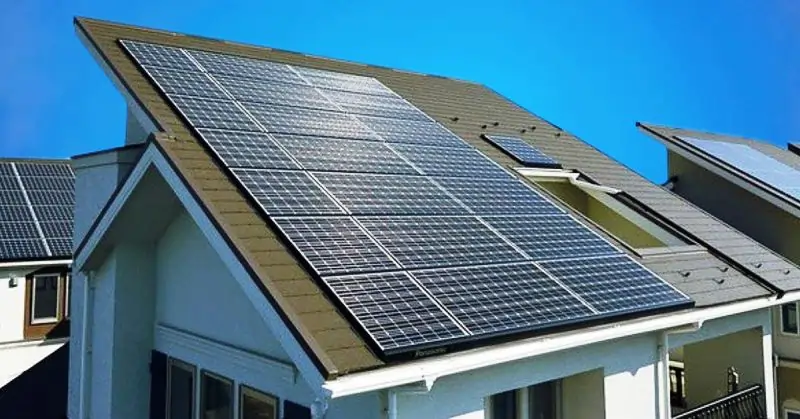
Overview: The Panasonic EverVolt PERC solar panel, rated at 361 watts, is a well-regarded option from the renowned Japanese brand, Panasonic. Known for their high-quality electronics, Panasonic’s solar panels are no exception. Manufactured in Singapore, this model stands out for its affordability and excellent performance. Despite being recently discontinued, it remains a popular choice due to its solid design, effective shading management, and long warranty. The EverVolt PERC module’s affordability and reliability have made it a top pick for many consumers.
Price Range:
- Estimated Price Range: $250 – $300 per panel
Pros and Cons:
Pros:
- Reputable Brand: Panasonic is a globally recognized and trusted brand, ensuring high standards of quality and reliability.
- Effective Shading Management: Designed to handle shading well, maintaining performance even in less-than-ideal conditions.
- Long Warranty: Offers a 25-year warranty for both product and performance, providing long-term assurance.
- Affordable Pricing: More affordable compared to other high-end solar panels from Panasonic, making it accessible for budget-conscious buyers.
- Solid Design: Well-built to withstand various environmental conditions, ensuring durability and consistent performance.
Cons:
- Discontinued Model: Recently discontinued, so availability may become limited.
- Moderate Efficiency: While reliable, its efficiency is moderate compared to some of the latest high-efficiency panels on the market.
Takeaways: The Panasonic EverVolt PERC solar panel is a strong contender for those seeking a balance of affordability and reliability from a reputable brand. Its effective shading management and long warranty make it a dependable choice for various installations. However, with its recent discontinuation, potential buyers should act quickly to secure this model. The EverVolt PERC’s inclusion in the top seven reflects its value and performance in the competitive solar market.
Brand 6: REC N-Peak 2 Solar Panel

Overview: The REC N-Peak 2 solar panel, rated at 360 watts, is a reliable and efficient option from REC, a Norwegian company known for its high-quality solar products. Manufactured in Singapore, this panel features N-type cell stick technology, which minimizes power loss in the first year of operation. While it may not be as advanced as REC’s Alpha panels, the N-Peak 2 offers excellent value for its price, making it an attractive option for budget-conscious consumers.
Price Range:
- Estimated Price Range: $220 – $270 per panel
Pros and Cons:
Pros:
- N-Type Cell Technology: Reduces power loss in the first year, ensuring higher energy retention compared to standard panels.
- High Efficiency: Rated at 360 watts, providing strong performance for residential and commercial use.
- Affordable Pricing: More affordable than REC’s Alpha panels, making it accessible for a wider range of budgets.
- Reliable Brand: REC is known for producing high-quality and reliable solar products.
- Durable Construction: Built to withstand various environmental conditions, ensuring long-term reliability.
Cons:
- Moderate Features: Not as advanced as REC’s higher-end models like the Alpha panels.
- Standard Design: Lacks some of the advanced features and aesthetics found in premium panels.
Takeaways: The REC N-Peak 2 solar panel is an excellent choice for those seeking a balance of efficiency and affordability. Its N-type cell technology ensures minimal power loss in the first year, providing better energy retention compared to standard panels. While it may not have the advanced features of higher-end models, its durability and reliable performance make it a valuable addition to any solar installation. The REC N-Peak 2 reflects the broader trend in the solar market towards accessible and efficient renewable energy solutions.
Brand 7: Q Cells Q.PE Duo Black Solar Panel
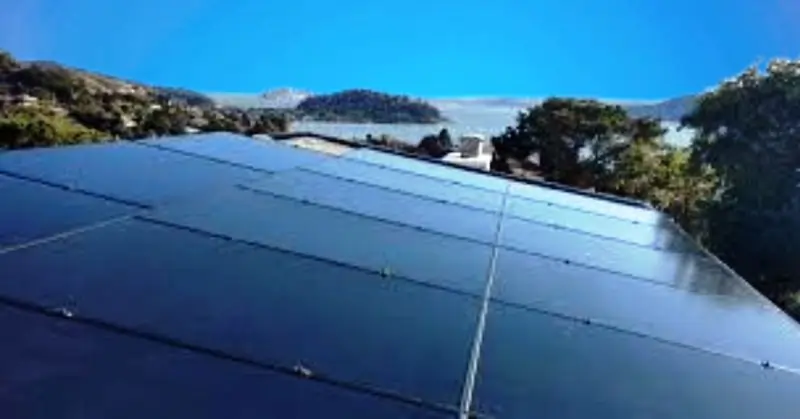
Overview: The Q Cells Q.PE Duo Black solar panel, rated for 400 watts, is a high-quality option from one of the leading brands in the solar market. Q Cells, a Korean company with a German engineering team, manufactures its panels in multiple locations, including the United States, Malaysia, Korea, and China. Known for their innovative designs and robust warranties, Q Cells panels offer a blend of efficiency, reliability, and affordability. The Q.PE Duo Black model features a sleek design and a comprehensive 25-year warranty, making it a popular choice among consumers.
Price Range:
- Estimated Price Range: $300 – $350 per panel
Pros and Cons:
Pros:
- High Power Output: Rated at 400 watts, providing substantial energy production for residential and commercial applications.
- Sleek Design: The all-black design is aesthetically pleasing and blends well with various architectural styles.
- Long Warranty: Comes with a 25-year warranty for both product and performance, ensuring long-term reliability.
- Brand Reputation: Q Cells is renowned for quality and innovation in the solar industry.
- Wide Manufacturing Base: Panels are produced in multiple countries, ensuring a steady supply and adherence to high-quality standards.
Cons:
- Moderate Efficiency: With an efficiency of 20%, it is slightly below average compared to some of the highest-performing panels on the market.
- Price: While not the most expensive, it is priced higher than some other panels with similar efficiency.
Takeaways: The Q Cells Q.PE Duo Black solar panel is a robust and reliable option, ideal for those seeking a high power output and a sleek design. Its comprehensive 25-year warranty and strong brand reputation make it a dependable choice for long-term solar investments. While its efficiency is slightly below the top performers, it offers a good balance of performance, design, and reliability, making it a valuable addition to any solar installation. The Q.PE Duo Black’s popularity underscores the trend towards quality and durability in the solar market.
FAQ on “Solar Panels”
Q: What are solar panels?
A: Solar panels convert sunlight into electricity using photovoltaic cells.
Q: How long do solar panels last?
A: Solar panels typically last 25-30 years with proper maintenance.
Q: Can solar panels work during cloudy days?
A: Yes, solar panels can still generate electricity on cloudy days, though less efficiently.
Q: Are solar panels worth the investment?
A: Yes, they reduce energy bills and provide long-term savings while benefiting the environment.
Conclusion
Investing in solar panels is a smart move for both the environment and your wallet. As we’ve seen, the top brands in 2023 offer a variety of options that balance efficiency, affordability, and reliability. Whether you’re looking for high power output, sleek design, or cost-effective solutions, there’s a solar panel to meet your needs. As the solar market continues to evolve, now is a great time to make the switch and enjoy the long-term benefits of renewable energy. Thank you for exploring these top solar brands with us. Feel free to visit A1 Solar Store for more information and let us know if you have any questions. Happy solar shopping!
